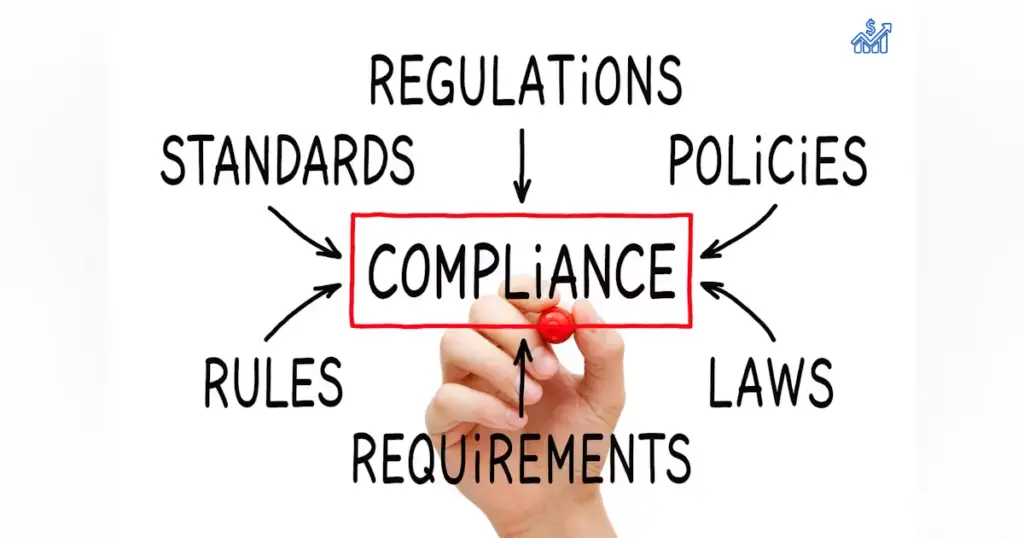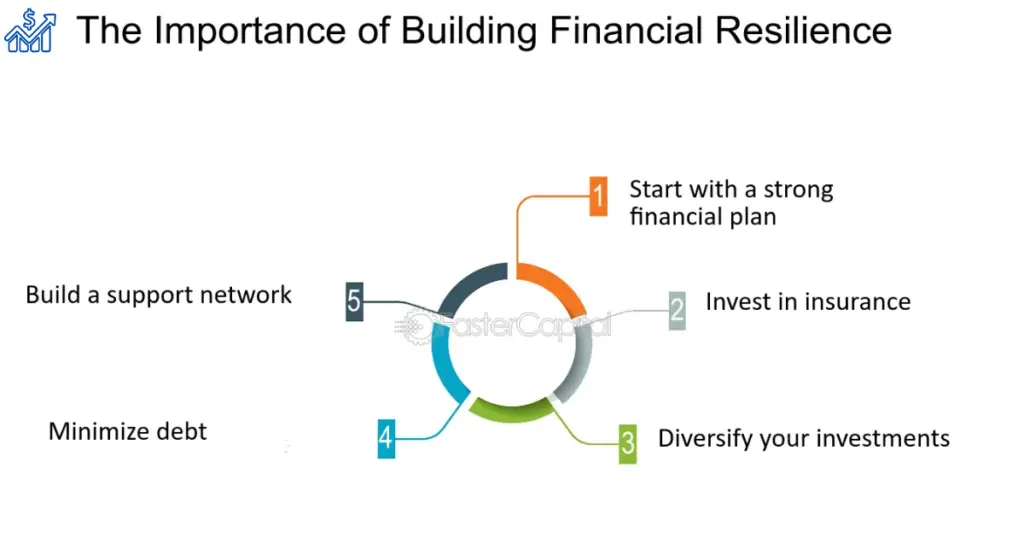Table of Contents
In today’s digital age, the landscape of business has shifted significantly, with more and more entrepreneurs turning to the online sphere to start and grow their ventures.
In this comprehensive guide, we’ll delve into the essential aspects of online business accounting, exploring key strategies, tools, and best practices to help you navigate the financial landscape of your online venture.
Understanding the Basics of Online Business Accounting

To lay a solid foundation, it’s crucial to understand the fundamental principles of online business accounting. This chapter will cover topics such as:
Differentiating between personal and business finances:
Types of business structures:
Whether you’re operating as a sole proprietor, LLC, partnership, or corporation, your business structure impacts how you manage your finances. We’ll explore the pros and cons of each structure from an accounting perspective.
Setting up accounting systems:
Financial Reporting and Analysis

In this chapter, we’ll dive deeper into financial reporting and analysis, providing insights into:
Income statements:
Understanding your revenue streams and expenses is critical for assessing the profitability of your online business. We’ll explore how to create and interpret income statements to gain valuable insights into your financial performance.
Balance sheets:
Cash flow management:
Cash flow is the lifeblood of any business, and managing it effectively is essential for sustainability and growth. We’ll cover strategies for optimizing cash flow, including invoicing, payment processing, and expense management.
Tax Compliance for Online Businesses

Tax compliance is a crucial aspect of online business accounting, and understanding your obligations can help you avoid costly penalties. This chapter will explore:
Tax deductions and credits:
Sales tax considerations:
Selling products or services online often involves navigating complex sales tax regulations. We’ll discuss the basics of sales tax nexus, collection, and remittance requirements to ensure compliance with applicable laws.
International tax implications:
Forecasting and Budgeting

Budgeting and forecasting play a vital role in strategic planning and decision-making for online businesses. In this chapter, we’ll cover:
Creating a budget:
Financial forecasting:
Forecasting allows you to anticipate future revenue, expenses, and cash flow trends, enabling proactive decision-making. We’ll explore various forecasting methods and how to leverage them to plan for growth and mitigate risks.
Performance monitoring:
Risk Management and Fraud Prevention

Online businesses are vulnerable to various risks, including fraud, cybersecurity threats, and economic downturns. This chapter will focus on:
Fraud prevention measures:
Implementing robust internal controls and security protocols can help safeguard your online business against fraudulent activities. We’ll discuss common types of fraud and practical strategies for prevention and detection.
Cybersecurity considerations:
Economic risk mitigation:
Economic fluctuations and unforeseen events can impact your online business’s financial stability. We’ll discuss risk mitigation strategies, such as diversification, insurance, and emergency funds, to weather economic uncertainties.
Outsourcing and Hiring Accounting Professionals

Outsourcing options:
Outsourcing accounting tasks to third-party providers or freelancers can offer cost savings, expertise, and scalability for your online business. We’ll discuss different outsourcing models, including virtual bookkeeping services, accounting firms, and freelance professionals.
Hiring accounting professionals:
Collaboration and communication:
Effective collaboration and communication between you and your accounting team are essential for seamless financial management. We’ll explore tools and strategies for facilitating communication, sharing documents, and ensuring transparency in your accounting processes.
Continuous Learning and Adaptation

The landscape of online business and accounting is constantly evolving, driven by technological advancements, regulatory changes, and shifting consumer behaviors. In this final chapter, we’ll discuss the importance of continuous learning and adaptation in mastering online business accounting:
Staying updated:
Keeping abreast of industry trends, regulatory updates, and technological innovations is crucial for staying ahead in the competitive online business environment. We’ll explore resources and channels for ongoing education and professional development in accounting and finance.
Embracing innovation:
Flexibility and resilience:
Flexibility and resilience are essential qualities for navigating uncertainties and adapting to changing circumstances in the online business landscape. We’ll explore strategies for fostering adaptability, managing risk, and embracing opportunities for growth and innovation.
Implementing Effective Financial Controls

Segregation of duties:
Separating key financial tasks among different individuals helps prevent errors and fraud by ensuring accountability and oversight. We’ll discuss the concept of segregation of duties and how to implement it within your online business accounting processes.
Internal audits:
Conducting regular internal audits allows you to evaluate the effectiveness of your financial controls and identify areas for improvement. We’ll explore the importance of internal audits, common audit procedures, and how to leverage audit findings to enhance your online business’s financial integrity.
Documentation and record-keeping:
Strategic Financial Planning

Strategic financial planning is vital for setting goals, allocating resources, and guiding the long-term growth of your online business. In this chapter, we’ll explore the key components of strategic financial planning and how to implement them effectively:
Goal setting:
Capital allocation:
Efficiently allocating capital to different areas of your online business maximizes returns and risks. We’ll explore strategies for prioritizing investments, managing cash flow, and balancing short-term needs with long-term growth objectives.
Scenario analysis:
Anticipating potential scenarios and their financial implications allows you to prepare for uncertainties and make informed decisions. We’ll discuss how to conduct scenario analysis, assess risk factors, and develop contingency plans to mitigate adverse outcomes.
Leveraging Technology for Enhanced Efficiency

Accounting software:
Cloud computing:
Cloud-based accounting systems offer the flexibility of accessing financial data from anywhere with an internet connection. We’ll explore the benefits of cloud computing for online business accounting, including scalability, security, and collaboration capabilities.
Integrations and automation:
Integrating accounting software with other business tools and platforms can streamline workflows and reduce manual data entry. We’ll discuss the importance of automation in online business accounting and how to leverage integrations to enhance efficiency.
Maintaining Compliance with Regulatory Requirements

Compliance with regulatory requirements is essential for online businesses to operate legally and avoid potential penalties or fines. In this chapter, we’ll address key regulatory considerations and how to ensure compliance within your online business accounting practices:
Tax regulations:
Tax laws and regulations vary depending on factors such as location, business structure, and industry. We’ll discuss the importance of staying updated on tax regulations relevant to your online business and how to fulfill your tax obligations effectively.
Financial reporting standards:
Data privacy and security:
Protecting sensitive financial information and customer data is paramount in online business accounting. We’ll discuss compliance requirements such as the General Data Protection Regulation (GDPR) and best practices for safeguarding data privacy and security.
Building Financial Resilience and Adaptability

In today’s rapidly changing business environment, financial resilience and adaptability are essential qualities for online businesses to thrive. In this chapter, we’ll examine strategies for building resilience and adaptability within your online business accounting framework:
Contingency planning:
Diversification of revenue streams:
Relying on a single revenue stream exposes your online business to greater risk in the event of market fluctuations or industry changes. We’ll explore the importance of diversifying revenue streams and how to identify new opportunities for growth and expansion.
Continuous improvement:
Conclusion:
Mastering online business accounting is a multifaceted endeavor that requires a combination of knowledge, skills, and strategic planning.
By incorporating the principles and practices outlined in this comprehensive guide, you can optimize your online business’s financial management processes, mitigate risks, and position yourself for long-term success in the dynamic digital marketplace.
With dedication, diligence, and a proactive approach to financial management, you can achieve your goals and realize the full potential of your online business.
Why is online business accounting important?
Online business accounting is crucial for tracking income, expenses, and overall financial health. It helps ensure compliance with tax regulations, provides insights for strategic decision-making, and enables accurate financial reporting.
What are the basic components of online business accounting?
Basic components include tracking sales revenue, monitoring expenses such as operating costs and inventory purchases, managing accounts payable and receivable, reconciling bank statements, and preparing financial statements like profit and loss statements and balance sheets.
How can online business owners streamline their accounting processes?
Online business owners can streamline accounting processes by utilizing accounting software tailored to their needs, automating routine tasks such as invoicing and expense categorization, maintaining organized records, and staying up-to-date with financial transactions.
What are some common accounting mistakes online business owners should avoid?
Common mistakes include neglecting to separate personal and business finances, failing to track expenses consistently, overlooking tax obligations, not reconciling accounts regularly, and relying solely on manual accounting methods instead of leveraging digital tools.
How can online business owners ensure accurate financial reporting?
Online business owners can ensure accurate financial reporting by reconciling accounts regularly, maintaining detailed records of income and expenses, adhering to accounting standards and regulations, seeking professional guidance when needed, and conducting periodic financial reviews or audits.

